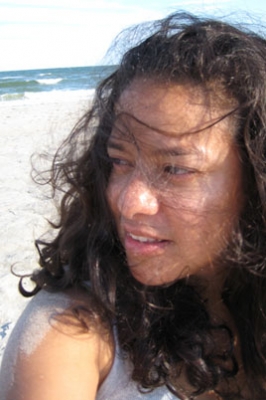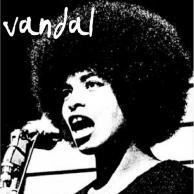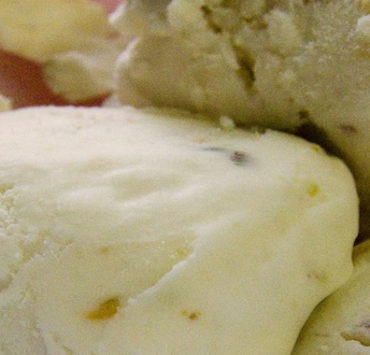
Read Sheila Maldonado’s “Future Tense (minor tribe: 2012)”
1. What about your work (creative, activist, etc) excites you the most?
What excites me about doing this writing work is the exploration, the ability to wander, the play, the freedom, limits only you set on yourself, the conversation you get to start, the conversation you choose to engage in. I tend to like that conversation that’s trippy or funny. I like odd angles and forgotten places, pop songs and tongue twisters. I am into an emotional mathematics, feeling with structure, a place to reveal and conceal, to be honest and artful.
2. Can you share with us some artists/ writers that are currently impacting the way you think and live? That inspire/motivate you and you feel are significant?
The last thing I taught that rang my bell was a little essay by Judith Ortiz Cofer called “The Cruel Country” that was in an online essay journal, Brevity. I had to teach high schoolers how to write with more detail and get beyond the surface of understanding and this was a simple essay about writing from a photo. Ortiz Cofer chose a photo of her mother who passed away some time ago and I chose one of my father who also passed away a few years ago. I actually didn’t really realize it was about mourning when I first chose it. I just liked the writing from photo idea.
I modeled the essay for the students and it was pretty satisfying, got me to talk about feeling as plainly as I did description. The exercise was an outside/inside exploration, what is happening on the surface, literally what do you see, and what is happening in the life of the subject, what story do they carry, what do you imagine. When the students got to writing it seemed to make their descriptions feel weighty and symbolic and the interior stories less overwrought. I can like a plain writing sometimes, especially when it comes to talking about feeling. Perhaps I think it’s more honest in that way or that it’s not asking or pleading with the reader to feel as the writer does, the feeling is presented as a fact and perhaps taken by the reader as such.
4. Vandal‘s new issue is food and migration: A recipe that represents home or you?
Recipe link: Forthcoming
5. Do you want to share anything else about the work featured in Vandal: For example, what inspired it? A context? What next?
The poem started with a dare from a writing teacher, Wayne Koestenbaum to write about the one thing you always wanted to write about. This was my idea of writing from the perspective of the ancient Maya, or an ancient people who encountered the Maya or at least someone who thought they were coming from that perspective somehow. I called it sci-fi poetry when I first read it aloud. It’s my idea of an ancient yet modern voice. I think I first wrote it out on the train uptown, tired and delirious from another grinding day of work. I thought I was tapping into some larger voice.
I tend to think the ancient is not that much different than how we live today. Of course I am ignoring all the vast spiritual and technological differences. But I do feel this sense of living in a civilization’s decline, which I think is some aspect of what the Maya must have felt, this sense of decay and instability.
The Maya are one of my older obsessions. My family is from Honduras, Central America, home to one of the great ruins and ever since I saw it when I was a teenager my imagination just could not let it go. Before and beyond 2012, the Maya or at least my notion of them, will stay with me.
What is next for me is a larger exploration of that obsession. That and another hodgepodge book of poems.
8. Do you have any special rituals, or is writing something you just have to hunker down and do?
I like writing on the train. I like writing in my journal. I like writing with a candle on and some incense burning, getting all witchy with it. I like when I have some real time to take it slow in the morning and write down an often maze-like dream. I like writing down a line that comes to me and insists on living on a screen or a page. I write on the I-gadget and the back of an envelope. I write when I have energy. I write when I’m shutting down. I write even when I think I’m not writing. I write when I walk. I write when I dance. I write when I bike. I write when I take a picture. I write when I drink my green tea, just before the caffeine brings me to tears. I write when I talk to my friends, when we e-mail dumb videos and banter. I write when I’m not telling students to write. I write when I am telling them to write. I am telling me to write.
10. When did you decide to be a writer?
When I was very little, I read early from about the age of 3. My father bought me those books with cassette tapes and I lived for the ding that told you to turn the page. He would tell me I would get off the bus from school when I was about 6 or 7 and I would want to tell him everything I saw and heard in school, that I wanted to write it all down. I still work from that urge to show people places they haven’t seen, especially my family who never enter the worlds I do, the schools, the workplaces.
11. Who were and are some of the writers important to you?
Paul Beatty, Sandra Cisneros, Elaine Equi, Willie Perdomo, Octavia Butler, Ursula K. LeGuin, Roberto Bolaño, William Carlos Williams, Langston Hughes, Claribel Alegría, Tomás Rivera (the Tomás in the poem nominated), Nicanor Parra. In the beginning of learning what literature was, it was Borges and Márquez of course.
There are so many more including all my writing/art-making friends who really help keep the conversation and creation alive for me. That list goes on and on.
Shout out to Björk, A Tribe Called Quest and the Beatles, who will all be played at my wake.
12. Do you have a view on whether men and women write differently? Received differently?
I do think people often believe men are writing from some abstract authoritative place that has nothing to do with their lives or obsessions while all women do is write biographically and therefore somehow easily without a notion of craft or creating artifice.








